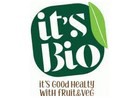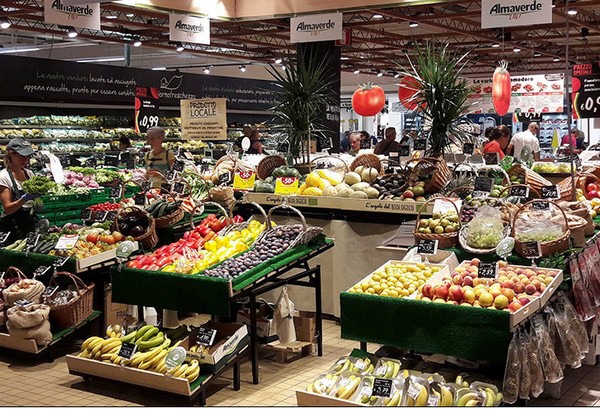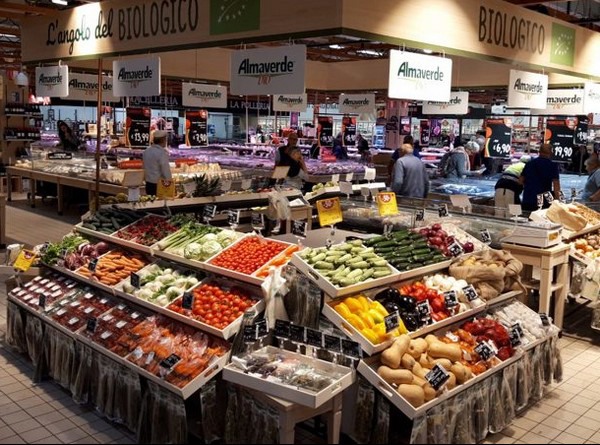It's Bio is a project  funded by AOP Gruppo Vi.Va to promote the consumption of organic products in Italy, Belgium, and Greece. During the workshop, recently held in Bologna (IT), dedicated to deepening the topic of "consumption" with some representatives of the Italian GDO, the key theme that emerged from the discussion with the representative of Coop Italia, Alberto Ancarani and with Massimo Silvestrini of Carrefour, is that the cooling of purchases must not corner organic, which represents a premium category for both brands that combines health and well-being, and sustainability.
funded by AOP Gruppo Vi.Va to promote the consumption of organic products in Italy, Belgium, and Greece. During the workshop, recently held in Bologna (IT), dedicated to deepening the topic of "consumption" with some representatives of the Italian GDO, the key theme that emerged from the discussion with the representative of Coop Italia, Alberto Ancarani and with Massimo Silvestrini of Carrefour, is that the cooling of purchases must not corner organic, which represents a premium category for both brands that combines health and well-being, and sustainability.
The breadth of the assortment certainly guarantees customer loyalty, but the problem posed by large-scale distribution is the price of organic products. The price differential must not be too high - underlines Ancarani of Coop Italia - and certainly, there is no intention of taking a step back on organic, especially if we consider our brand policy with our organic Vivi Verde line that is lived from the consumer as a brand in itself, very strong and in which we will continue the investment. Also, for Massimo Silvestrini of Carrefour, the organic development path continued in line with the transnational Food Transition pact project, active since 2018 and aimed at promoting a change in food style towards conscious consumption and more sustainable production models.

"We are clearly in a difficult time," Claudio Scalise, manager of SG Project and moderator of the It's Bio workshop, underlined, "but at this moment, Modern Distribution has a great task and a great opportunity. The potential of organic is enormous and still unexpressed. In reality, the current policies of the chains tend to rationalize the assortments, keeping only the high-selling references. For a category such as organic, a policy of enhancing the offer with wider assortments, with greater visibility and more careful communication would not only lead to greater returns in terms of sales but would also contribute to a more distinctive strategic positioning for the sign itself."

The European market, according to the most recent international forecasts, is destined to see organic growth from now to 2026, in market terms of 8%, even if the current contingencies linked to energy costs and the war in Ukraine are holding back partly due to development, the Italian export of organic has recorded a growth of + 16% in 2021, and the average European expenditure on organic is 100 euros per capita per year with peaks of 300 euros per capita per year for big spenders such as Germany, Denmark, France, Benelux (Sources Eurostat et al.).
The growth potential is, therefore, high, but it is necessary to have the right positioning of organic products, a lot of choices, and adequate communication on the values that the organic method puts in place.
For more information: aopgruppoviva.it
